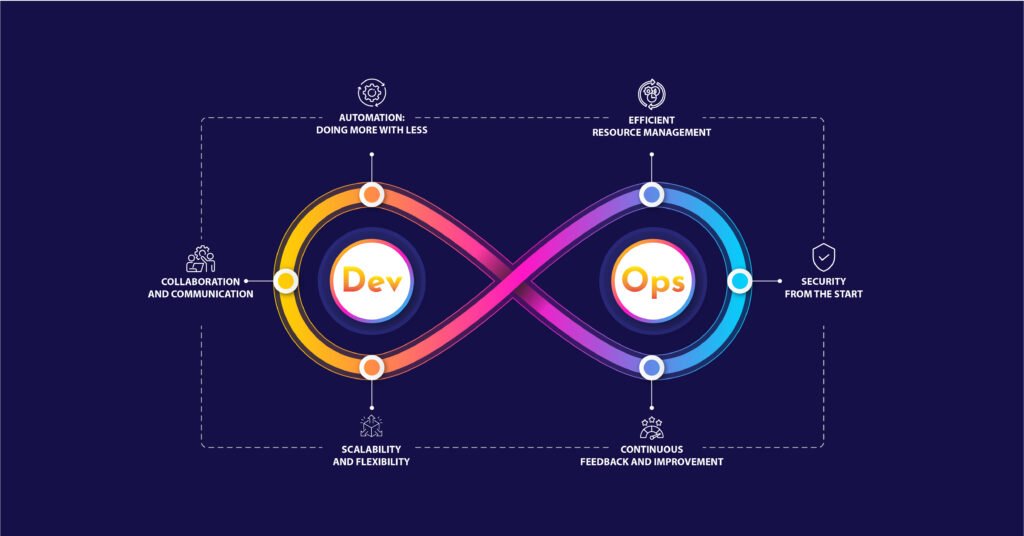For startups, every moment counts, and every resource is precious. DevOps has emerged as a game-changer in this fast-paced world, where innovation can make or break a business. DevOps practices accelerate software development and deployment and enable startups to do more with less. In this blog post, we’ll explore how startups can leverage DevOps to achieve rapid development and deployment on a budget, paving the way for success in a competitive landscape.
The Startup Imperative
Startups face unique challenges. They must quickly bring their innovative ideas to market, often with limited funding and a small team. Speed and efficiency are of the essence, and any delays or resource wastage can be detrimental. Here’s how DevOps can address these challenges:

1. Automation: Doing More with Less
Automation is at the heart of DevOps. For startups, automation means reducing the manual effort required for repetitive tasks such as code integration, testing, and deployment. By automating these processes, startups can save valuable time and ensure consistent and error-free releases. Popular CI/CD (Continuous Integration/Continuous Deployment) tools like Jenkins, Travis CI, and GitLab CI/CD can help startups set up automated pipelines tailored to their needs.
2. Efficient Resource Management
Startups often operate with tight budgets. DevOps can help them optimise resource usage by automating the provisioning and scaling of infrastructure. Infrastructure as Code (IaC) tools like Terraform and Ansible allow startups to define their infrastructure requirements in code, making it easier to manage and scale infrastructure as needed without incurring unnecessary costs.
3. Collaboration and Communication
DevOps emphasises collaboration and communication between development and operations teams. DevOps practices ensure everyone is on the same page in the startup environment, where cross-functional collaboration is crucial. This alignment leads to faster issue resolution and smoother deployments.
4. Scalability and Flexibility
Startups often experience rapid growth, and their software must scale accordingly. With DevOps practices, applications can be designed with scalability in mind. Microservices architecture, containerisation (using Docker), and orchestration tools like Kubernetes allow startups to build scalable and flexible systems that adapt to changing demands without significant overhauls.
5. Continuous Feedback and Improvement
Continuous feedback is vital for startups to refine their products and services. DevOps promotes a culture of constant improvement through automated testing and monitoring. Startups can gather insights from real-world usage and iterate on their offerings more effectively.
6. Security from the Start
Security is non-negotiable, especially for startups that handle sensitive data. DevOps includes DevSecOps practices, which integrate security measures into the development and deployment pipeline. By addressing security concerns early in development, startups can build trust with customers and investors.
In the dynamic world of startups, embracing DevOps is not just an option; it’s a strategic imperative. DevOps practices empower startups to innovate rapidly, optimise resource utilisation, and build a strong foundation for growth. Startups can thrive even in resource-constrained environments by automating processes, fostering collaboration, and emphasising scalability and security.
At Quality Matrix Group, we understand the challenges that startups face, and we’re dedicated to helping them harness the power of DevOps. Our tailored DevOps solutions enable startups to accelerate development, reduce costs, and achieve their business objectives. If you’re a startup looking to make the most of your resources and take your innovations to market quickly, you can contact us today to explore how DevOps can work for you. Together, we can build a brighter future for your startup.
